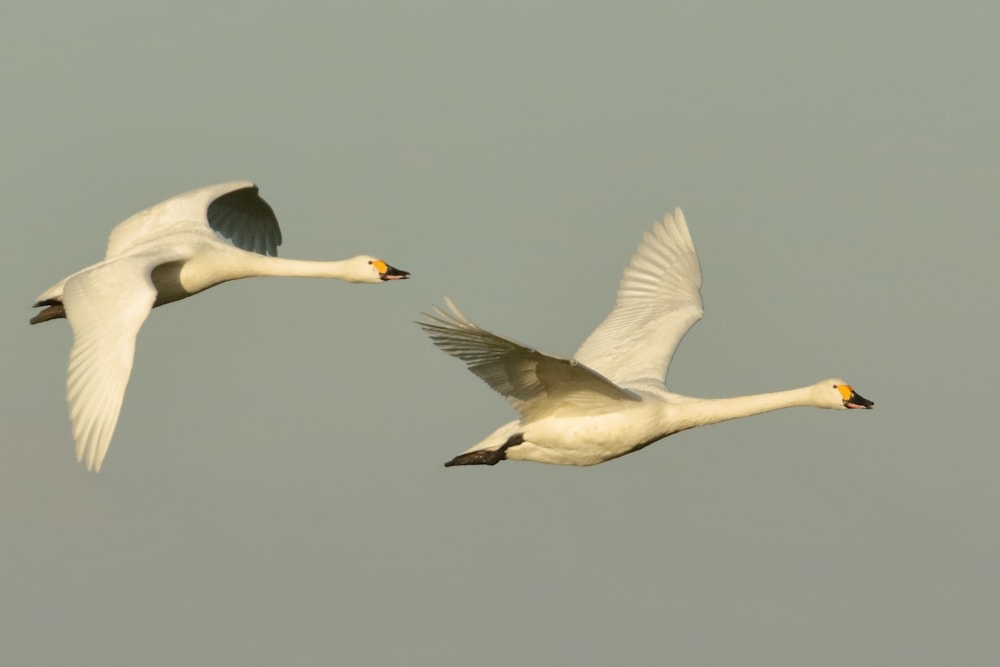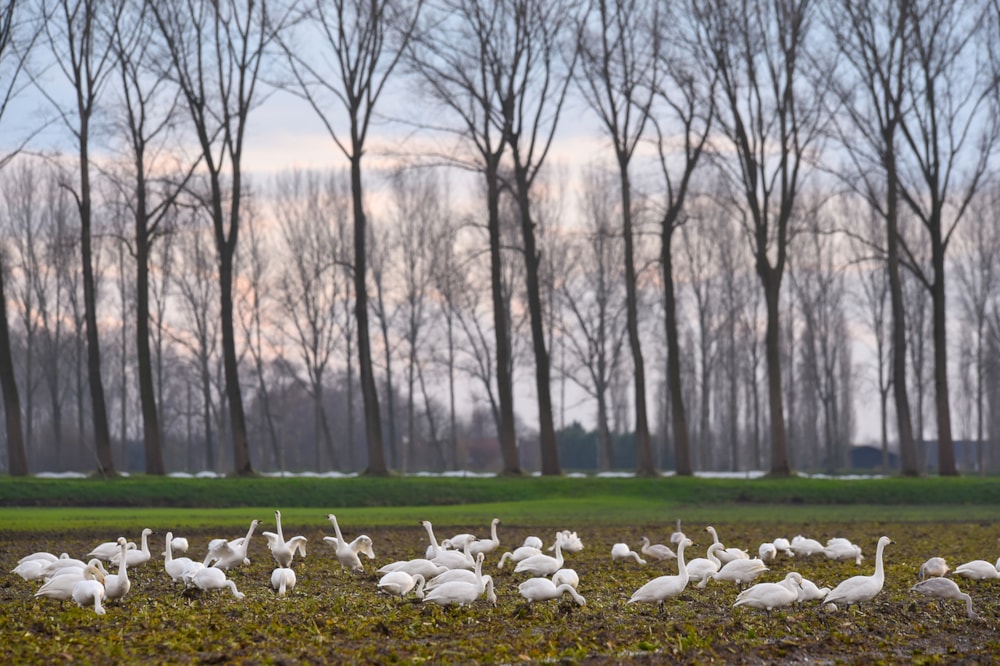A new study has demonstrated the increasing importance of the German state of Schleswig-Holstein to Europe's wintering Bewick's Swans.
In recent years, the state has held up to a third of the north-west European population of the species – particularly so in March, when wintering numbers are bolstered by others staging in the area before continuing their spring migration north-eastwards to the Baltic countries and, ultimately, their Russian breeding grounds. Winter 2017-18 produced consistently high numbers in Schleswig-Holstein, with a record count of 8,364 individuals made on 24 February comfortably exceeding the previous highest of 7,611 in 2008.

In contrast to the sharp declines noted further west, Bewick's Swan numbers are on the increase in northern Germany in winter (Mike Trew).
The noticeable increases in northern Germany have come at a time when the overall European population has suffered a substantial decline. This has been most evident in the western part of its winter range – particularly so in Ireland, Britain and The Netherlands, where numbers are in freefall and populations of wintering swans have even completely disappeared from many traditional sites. This contrast in fortunes strongly suggests that higher proportion of north-west Europe's Bewick's Swans are now wintering in Germany, rather than simply staging there in the late winter period.
The study also found that big numbers of Bewick's were arriving in Germany at an earlier date in the winter than previously, with counts in December 2017 much higher than at comparable times in the preceding years. The peak count, always made in the late winter period, has also advanced in date – it is now late February when numbers are at their maximum, rather than the more traditional March.
As a result of this, Bewick's Swans were found to be spending a longer period of time in Schleswig-Holstein than previously, with this increased duration also coinciding with milder winters in the region. As with other wildfowl, a milder climate is known to encourage birds to spend the winter closer to their breeding grounds – a phenomenon known as ‘short-stopping'. Increasingly mild winters in north-west Europe seem to be causing eastward shifts in the core wintering ranges of many species of wildfowl, not only including Bewick's Swans but ducks such as Common Pochard, Smew and others.
Interestingly, the increases in Germany (and Denmark) reflect an increase in maize production there, which offers the swans novel feeding opportunities during the winter months, likely encouraging them to stay in places that they wouldn't previously have done in times gone by, when food availability was lesser.

Improved feeding opportunities in northern Germany and Denmark also appear to be encouraging Bewick's Swans to winter further east (Marc FASOL).
Reference
Augst, H-J, Hälterlein, B, & Fabricius, K. 2019. From stopover to wintering: Bewick's Swans Cygnus columbianus bewickii in Schleswig-Holstein, northern Germany in winters 2016/2017 and 2017/2018. Wildfowl 5: 139-163.


